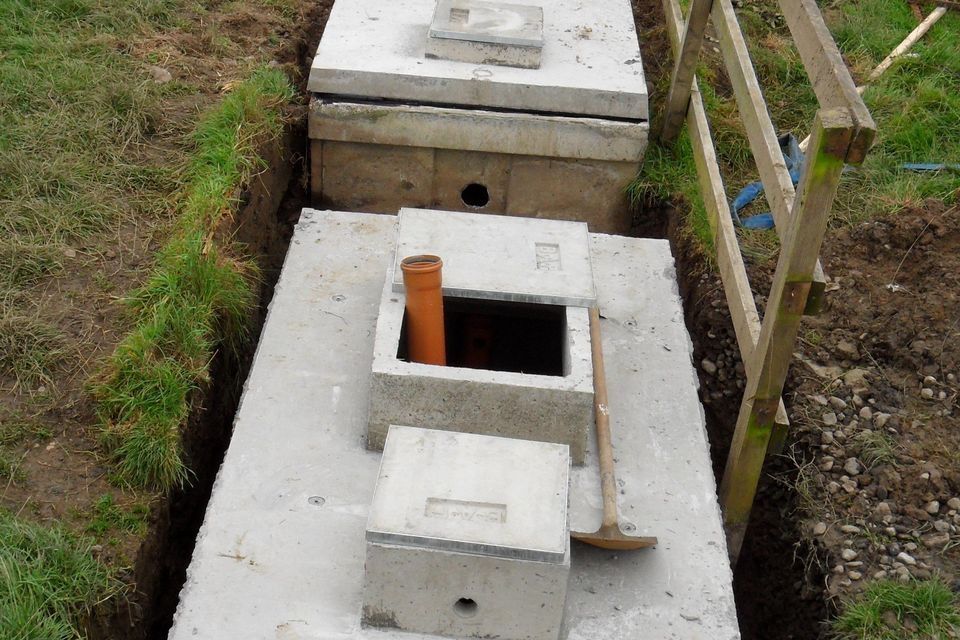Drinking water and rivers at risk as almost half of septic tanks fail inspection
Septic tanks that failed to make the grade were not maintained properly or weren't installed correctly in the first place. File photo
Almost half of household septic tanks checked last year failed inspection, the Environmental Protection Agency (EPA) has said.
The agency warned the high failure rate was a serious health risk to humans and an environmental hazard to waterways.
It found 45pc of septic tanks failed to make the grade because they were not maintained properly or not installed correctly in the first place.
The tanks selected for inspection were targeted because they were close to drinking water wells and rivers where the risk of contamination is highest.
They put people at risk of exposure to raw sewage seeping into their gardens and to harmful bacteria and viruses in their drinking water.
They also risked choking rivers with high levels of phosphorus and nitrogen escaping through drainage channels after inadequate treatment.
The failure rate is worrying because there are nearly half a million septic tanks in Ireland. There are no accurate figures for how many are faulty because only a tiny fraction are inspected every year.
Local authorities have responsibility for inspections and they are collectively required to inspect just 1,200 a year. Last year, they inspected only 1,189.
Westmeath County Council was required to inspect only seven septic tanks last year, but it only managed to carry out two inspections. Leitrim County Council was required to inspect 10 septic tanks but did only four.
Read more
Enforcement by local authorities was also “inconsistent and needs to improve”, the EPA said. It stated that some counties resolved problems with only half the tanks that failed inspection. No county recorded a 100pc fix rate.
That’s despite grants for fixing septic tanks more than doubling, from €5,000 to €12,000, from the start of this year. Eligibility criteria have also softened.
EPA programme manager Noel Byrne said this left little excuse for householders to neglect their tanks.
“It is unacceptable that the number septic tanks left unfixed for more than two years continues to rise,” he said. “Greater enforcement is needed by local authorities to ensure failed systems are fixed.
“Where faulty septic tanks are not being fixed, particularly given the availability of the enhanced grant scheme, local authorities need to use their enforcement powers to protect the environment and public health.”
Last year, 194 grants, totalling nearly €1m, were awarded. It is hoped the number of applicants will rise with the increase in assistance offered.
Join the Irish Independent WhatsApp channel
Stay up to date with all the latest news















